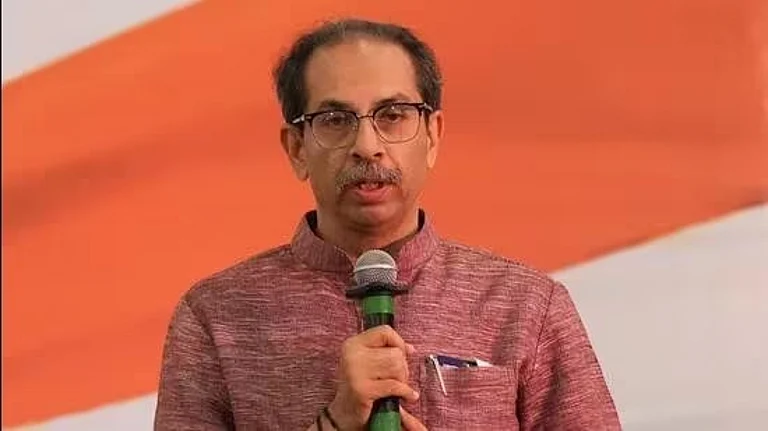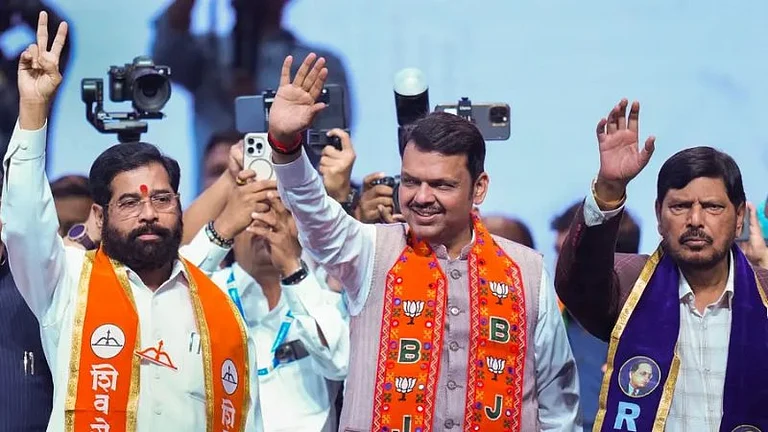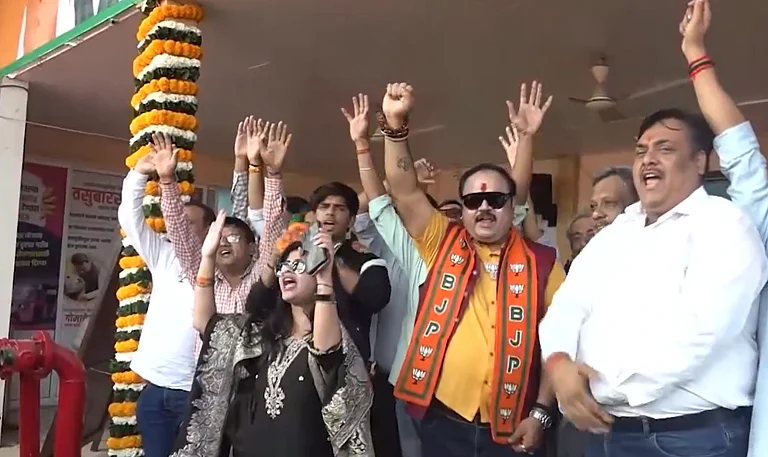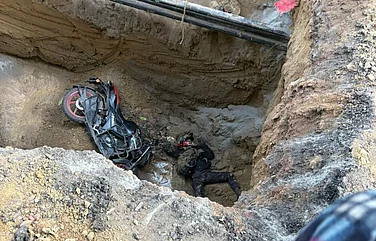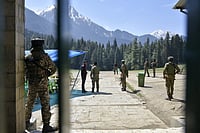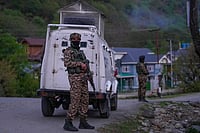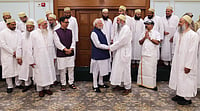Diwali in Maharashtra began with a crackle of political fireworks.
As political parties juggled complex poll arithmetic to accommodate favourable candidates to contest in the Maharashtra legislative assembly elections, several politicians who were denied tickets switched to rival parties, launching open rebellions.
At the end of the process, nearly 8,000 candidates, including those from the ruling Mahayuti alliance and opposition Maha Vikas Aghadi (MVA), had filed nominations to contests for the 288 assembly seats in Maharashtra.
By all accounts this is the most chaotic election in the state in the last decade.
“This time, the elections are no longer about the survival of political parties or the alliances, but about the candidates themselves. Every politician is bothered about their own existence and protecting their own position,” says Sanjay Patil, research scholar at the Mumbai University.
“They all want power at any cost. This a travesty for the once politically progressive Maharashtra.”
None of the two alliances—Mahayuti, led by the BJP and including Chief Minister Eknath Shinde’s Shiv Sena and Nationalist Congress Party (Ajit Pawar); and the MVA of the Congress, Shiv Sena (Uddhav Balasaheb Thackeray) and NCP (Sharad Pawar)—have managed to show unity, says veteran journalist and poll analyst Raju Parulekar. BJP and Shiv Sena are right-wing parties, whereas the Congress and NCP run on a secular ideology.
“These are not natural alliances. The parties do not share common ideologies and are not like-minded allies. They are each other’s enemies and are forced to fight on one plank. They are doing so with daggers drawn and guns to their heads,” he adds.
The alliances emerged after the dramatic turn of events post the 2019 assembly elections, when Thackeray’s Shiv Sena had a fallout with the BJP over the Chief Minister’s post and joined hands with the Congress and the NCP to form the MVA government.
After two-and-a-half years in power, the Thackeray government was ousted when Shinde and Ajit Pawar rebelled and joined the BJP to form the Mahayuti alliance.
The trigger for this chain of events, Patil believes, was the BJP’s inflated political ambitions which gained wings in 2014. Riding high on the ‘Modi wave’ and a landslide victory in Lok Sabha, the BJP broke its 25-year-long saffron alliance with Shiv Sena and decided to go solo for the Maharashtra assembly elections. The Congress and NCP, facing internal crises, also followed suit. All four parties, two national and two regional, contested independently.
“The saffron alliance worked on the understanding that BJP will lead in the centre and Sena in the state. For the first time, this equation of Sena being the big brother and BJP being its junior partner, changed,” he recalls.
The BJP emerged as the single-largest party with 122 seats and Devendra Fadnavis became the first CM from the party to lead the state. BJP won tremendous bargaining power over other rival parties and continued its winning streak in the 2019 Lok Sabha elections.
In the 2019 assembly elections, the BJP’s tally reduced to 105 seats and it was forced to stay in the opposition, even after winning the maximum seats—till the Shinde and Ajith Pawar rebellion.
Maharashtra, thereafter, witnessed ‘vendetta’ politics with threats and intimidation by the Modi government at the centre. Several opposition party leaders faced probes and raids by national agencies like the Enforcement Directorate and Anti-Corruption Bureau, and out of fear, they defected from their original parties and joined the Mahayuti coalition.
The switchover from opposition leaders, many of whom were sitting MLAs, into the ruling coalition parties increased their cumulative strength. It also added an extra burden on the BJP to accommodate them in the 2024 assembly elections, resulting in competition within the Mahayuti coalition for maximum seats.
BJP alone is contesting 148 assembly seats, the highest among all major political parties. Additionally, 13 BJP leaders are contesting on Shiv Sena (Shinde) tickets and 6 on NCP (Ajit Pawar) tickets, taking the total tally to 167 seats. It has also awarded five seats to smaller allies in the Mahayuti. Shinde’s Sena has fielded candidates in 80 seats and Ajit Pawar's NCP in 53 seats. In the opposition MVA, the Congress is fighting in 103 seats, Sena (UBT) in 89, and NCP (SP) in 87 seats.
“BJP is contesting the highest number of seats ever, because it is still not confident of installing the next CM due to the strategic mistake it committed in 2019,” Patil remarks.
The current chaos over consensus on seat sharing and ticket distribution has unleashed rebellion within the political parties as well. Nearly a dozen aspirants like BJP’s Gopal Shetty, Madhu Chavan and Ulhas Bagul from Congress, and Bhausaheb Bhoir from NCP are contesting independently.
With rebels contesting as independents against official candidates from their own alliance, several constituencies will see dual and even triangular fights. These independents and rebel candidates will play a major role in determining the final winning tally, predicts Pune based poll analyst Arun Giri.
In the 2019 assembly elections, roughly 90 seats, which translates to almost 1 out of 3 seats, were decided by a winning margin of less than 10,000 votes. “Given there are so many close contests, independents will swing votes,” he says.
In the last five years, voters in Maharashtra have suffered the cost of party infighting as the electoral mandate was tossed aside for political one upmanship. They have experienced several political shockwaves, from impossible alliances between Shiv Sena, NCP and Congress, to the split in NCP and Sena, horse-trading of sitting MLAs, appointment of two deputy chief ministers and politicians hopping to rival parties with no regards to ideology.
Giri believes that the coming election potentially holds more surprises. “Election history shows that voters do not like to be taken for granted. Considering the anger and resentment brewing among the voters, we may be in store for surprising results.”








